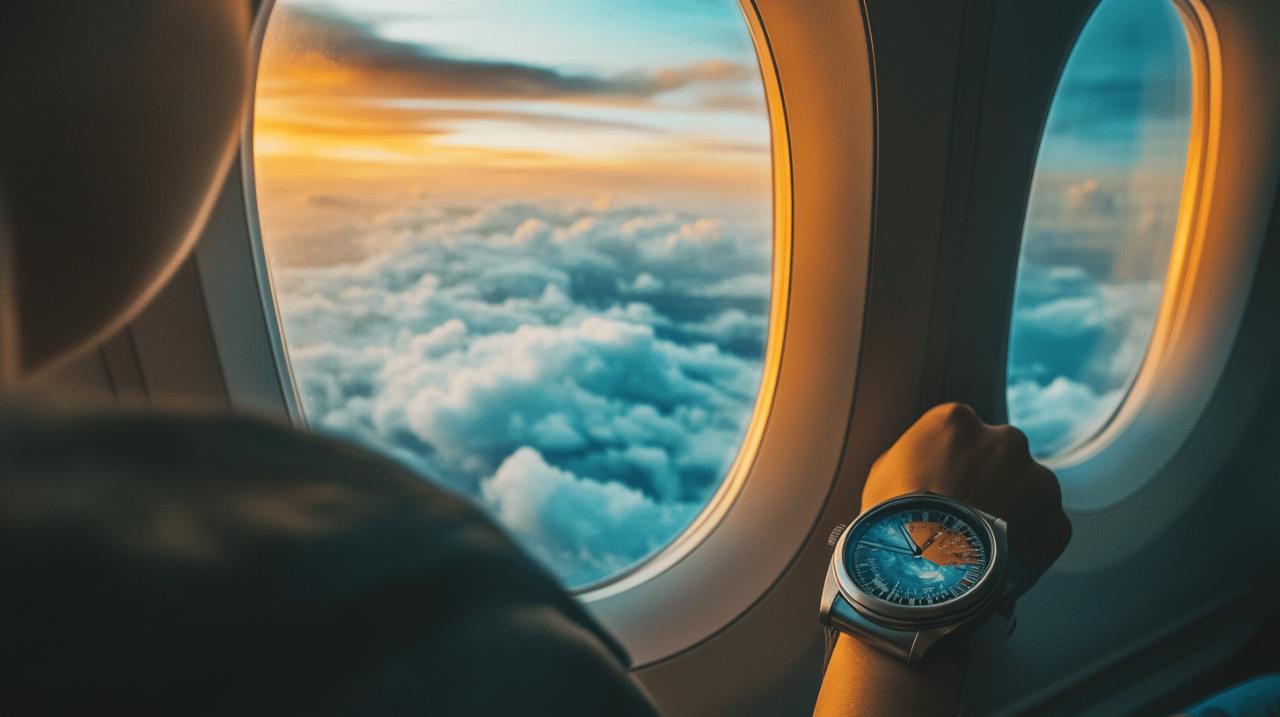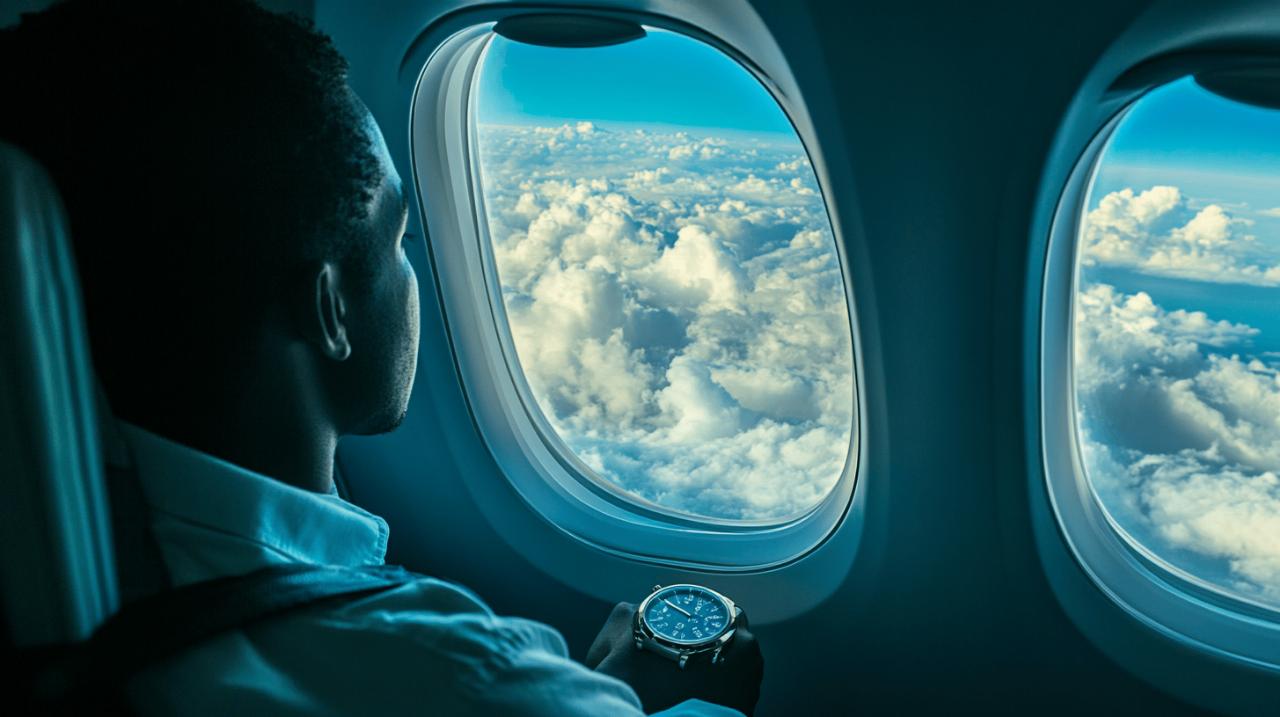Comment Bien Gérer le Décalage Horaire Entre la Martinique et la France: A Complete Guide for Those with Health Concerns
Travelling between Martinique and mainland France can be a marvellous adventure, whether you are jetting off for a bit of sun or returning to the hustle and bustle of city life. However, the time difference can leave even the most seasoned traveller feeling rather knackered. Understanding how to manage jet lag effectively is crucial, especially if you have health concerns or simply want to make the most of your first few days at your destination. This guide will walk you through practical strategies to help your body adjust smoothly, so you can enjoy your journey without the dreaded fatigue and grogginess.
Understanding the Time Zone Difference Between Martinique and Mainland France
The basics: utc offsets and seasonal changes
Martinique operates on Atlantic Standard Time, which is UTC-4 throughout the entire year. The island does not observe daylight saving time, so the clocks remain steady regardless of the season. Mainland France, on the other hand, follows Central European Time. During the winter months, roughly from late October to late March, France is on UTC+1, placing it five hours ahead of Martinique. Come summer, from late March to late October, France shifts to UTC+2, extending that gap to a full six hours. This seasonal variation means that the time difference you experience will depend on when you choose to travel. Whether you are booking a flight in February or August, it is worth checking the current offset to plan your adjustment strategy accordingly.
How your body clock responds to multi-hour shifts
Your body operates on a natural circadian rhythm, an internal clock that regulates sleep, digestion, and even mood. When you cross multiple time zones, this rhythm gets thrown off balance, leading to the familiar symptoms of jet lag such as fatigue, irritability, trouble concentrating, insomnia, and daytime sleepiness. The disruption is particularly pronounced when travelling eastward, as you are effectively shortening your day and asking your body to speed up its adjustment. Westward travel tends to be a bit easier because you are following the sun, giving yourself extra hours in the day. The general rule of thumb is that your body needs roughly one day per time zone to fully acclimatise. Given the five to six-hour difference between Martinique and France, you might feel the effects for nearly a week if you do not take proactive steps. Understanding this biological response is the first step in managing it effectively.
Preparing your body before you fly: pre-travel strategies
Gradually adjusting your sleep schedule at home
One of the most effective ways to minimise the impact of jet lag is to start adjusting your sleep schedule before you even board the plane. If you are heading from Martinique to France, try shifting your bedtime earlier by about thirty minutes every few nights in the week leading up to your departure. Conversely, if you are travelling westward to Martinique, push your bedtime a bit later each night. This gradual shift helps your circadian rhythm begin the transition in the comfort of your own home, making the adjustment less abrupt once you arrive. You might also consider aligning your meal times with the schedule at your destination, as eating patterns play a significant role in signalling your body clock. Every little bit of preparation counts, and even small changes can make a noticeable difference in how you feel upon arrival.
Smart hydration and nutrition tips before departure
What you eat and drink in the days before your flight can have a real impact on how well you cope with the time change. Staying well hydrated is absolutely essential, as dehydration can worsen the symptoms of jet lag and leave you feeling even more sluggish. Aim to drink plenty of water in the days before you travel, and continue this habit right through your journey. On the night before your flight, consider having a meal rich in carbohydrates, as this can promote better sleep and give your body the energy reserves it needs for the journey ahead. Avoid heavy, greasy foods that might leave you feeling bloated or uncomfortable during the flight. It is also wise to steer clear of excessive caffeine and alcohol in the days before departure, as both can interfere with your sleep quality and hydration levels. A balanced diet with plenty of fluids will set a solid foundation for managing the transition ahead.
Managing jet lag during your flight and upon arrival
In-flight habits to help reset your internal clock
 Once you are on the plane, your focus should shift to mimicking the routine of your destination as closely as possible. As soon as you board, set your watch to the local time of where you are heading. This simple psychological trick helps your mind begin the adjustment process straight away. If it is nighttime at your destination, try to get some sleep on the plane, even if it means using an eye mask or earplugs to block out distractions. Conversely, if it is daytime where you are going, do your best to stay awake by reading, watching a film, or simply keeping yourself occupied. Hydration remains your best mate during the flight, so drink water regularly and avoid alcohol and caffeine, both of which can dehydrate you and disrupt your sleep patterns. Opt for light meals rather than heavy, rich foods, as your digestive system is also adjusting to the new schedule. Wearing comfortable clothing will help you relax and make it easier to rest if the opportunity arises. These small steps can significantly ease the transition and leave you feeling more refreshed when you touch down.
Once you are on the plane, your focus should shift to mimicking the routine of your destination as closely as possible. As soon as you board, set your watch to the local time of where you are heading. This simple psychological trick helps your mind begin the adjustment process straight away. If it is nighttime at your destination, try to get some sleep on the plane, even if it means using an eye mask or earplugs to block out distractions. Conversely, if it is daytime where you are going, do your best to stay awake by reading, watching a film, or simply keeping yourself occupied. Hydration remains your best mate during the flight, so drink water regularly and avoid alcohol and caffeine, both of which can dehydrate you and disrupt your sleep patterns. Opt for light meals rather than heavy, rich foods, as your digestive system is also adjusting to the new schedule. Wearing comfortable clothing will help you relax and make it easier to rest if the opportunity arises. These small steps can significantly ease the transition and leave you feeling more refreshed when you touch down.
Embracing local schedules and natural light exposure
Upon arrival, one of the most important things you can do is to embrace the local time immediately, regardless of how tired you might feel. If you land in the evening, resist the temptation to go straight to bed if it is still relatively early. Instead, try to stay up until a reasonable local bedtime, as this will help your body start syncing with the new rhythm. Natural light exposure is a powerful tool for resetting your internal clock. If you have travelled eastward to France, aim to get plenty of sunlight in the morning, as this signals to your body that it is time to wake up and be active. A brisk walk or a bit of gentle exercise in the morning can work wonders for helping you adjust. On the other hand, if you have travelled westward to Martinique, seek out sunlight in the afternoon and consider wearing sunglasses in the evening to help bring forward your bedtime. Sunrise in Martinique typically occurs between half past five and half past six in the morning, while sunset falls between six and seven in the evening, giving you ample opportunity to soak up the natural light. Avoid long naps upon arrival, as tempting as they might be. If you absolutely must rest, limit yourself to a short power nap of no more than twenty to thirty minutes, as anything longer can make it harder to fall asleep at night.
Recovery Techniques and Health Considerations for Sensitive Travellers
Gentle activities and power nap guidelines
For the first few days at your destination, it is wise to plan gentle activities rather than anything too strenuous. Light physical activity such as walking, yoga, or a leisurely jog in the morning can help regulate your body clock and boost your mood. Walking is particularly beneficial because it combines the benefits of movement with exposure to natural light, both of which are essential for adjustment. Yoga can help reduce the physical and mental effects of jet lag by promoting relaxation and improving circulation. If you are in Martinique, you might fancy a stroll along one of the beautiful beaches or a gentle hike through the lush landscapes. If you are in France, exploring the local parks or historic sites on foot can serve the same purpose. Should you find yourself struggling to stay awake during the day, a short power nap can provide a much-needed boost without derailing your adjustment. Aim for no more than thirty minutes, and try to nap earlier in the day rather than late in the afternoon. This way, you will still be tired enough to sleep at a reasonable hour in the evening. Remember, the goal is to gradually train your body to the new schedule, and gentle, consistent activity is key to making that happen.
When to Consider Sleep Aids and Consulting Your GP
If you are really struggling with sleep despite following all the recommended strategies, it might be worth considering a mild sleep aid. Melatonin is a popular option that many travellers find helpful, as it is a natural hormone that regulates sleep and can assist in resetting your circadian rhythm. However, it is important to consult with your GP before taking any sleep aids, especially if you have existing health concerns or are taking other medications. Your doctor can provide personalised advice based on your health history and help you determine the right dosage and timing. Avoid using sleeping tablets unless specifically advised by a medical professional, as they can sometimes leave you feeling groggy and may not address the underlying issue of circadian disruption. In some cases, especially if you are travelling for business or have a particularly tight schedule, arriving a day early at your destination can give you the extra time you need to acclimatise. This approach is especially useful if you have important meetings or engagements planned, as it allows you to be at your best when it matters most. For those with pre-existing health conditions such as anxiety, insomnia, or chronic fatigue, it is always a good idea to discuss your travel plans with your healthcare provider well in advance. They may offer additional strategies or adjustments to your routine that can help minimise the impact of jet lag on your wellbeing.
Managing the time difference between Martinique and France does not have to be a daunting task. With a bit of preparation, smart in-flight habits, and a commitment to embracing the local schedule upon arrival, you can significantly reduce the effects of jet lag and start enjoying your destination much sooner. Whether you are travelling for leisure, business, or expatriation, these strategies will help you stay healthy and energised throughout your journey. Remember that everyone responds differently to time zone changes, so be patient with yourself and adjust these tips to suit your own needs. Safe travels, and may your next trip be as smooth and enjoyable as possible.
